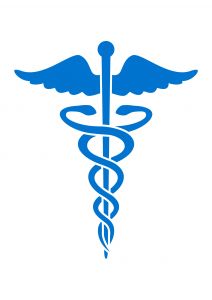The Vermont Supreme Court recently confirmed that notion in Taylor v. Fletcher Allen Medical Center, a case involving a woman who experienced complications arising from lumbar spinal surgery. But it is more than a truism; it is a rule of law that plaintiffs must present medical negligence evidence through an expert in the field who is knowledgeable and experience concerning the type of procedure and injury and familiar with the plaintiff’s medical records. The rule exists in the New England states and in most states in the U.S.
In the case, after the patient underwent the surgery, she experienced an accident in the hospital in which a nurse did not assist her appropriately during a bathroom visit. The woman fell. She experienced renewed physical pain. The woman asserted that the nurse was negligent, causing her to fall and re-injure her spine. She claimed that the fall caused a new injury causing her to experience severe physical and emotional pain. She also contended that the corrective surgery failed to adequately resolve her pre-surgery pain condition. Finally, she alleged that the hospital “covered-up” a key CT scan. Unable to find an attorney, she sued the hospital that performed the surgery on her own.
The trial court dismissed her claims because she failed to present the evidence through an expert. The reason for the rule is that most often, medical malpractice cases are complex, with a significant range of variables concerning the injury itself as well as fault, cause and prognosis. The Supreme Court referred to them as “countless variables.” The plaintiff presented textbook opinions and examples to support her negligence claim. The Court observed that the evidence itself was “unsubstantiated” by a live, under-oath witness. In effect, the plaintiff demonstrated the reason that an expert is required – “countless variables” in the nature of her injury, the causes and who is at fault – if anyone.
The plaintiff urged the Court to apply the “common knowledge” rule that is, essentially, an exception to the expert witness requirement. There are instances where a claim is so simple and obvious that expert rule is relaxed. In those cases, the Court averred, the circumstances must be “so apparent as to be comprehensible by a lay trier of fact,” meaning the jury. In plaintiff’s case, the “claims of fault and causation are sufficiently complex as to be beyond the scope of common knowledge to a layperson.”
The plaintiff’s presentation of the nursing textbooks underscored the need for an expert to interpret the facts for the jury. “Only testimony from an expert familiar with nursing practices and plaintiff’s medical record could testify about the potential that the provider’s breached the standard of care.” Even if an expert is not necessary to demonstrate that the accident caused plaintiff’s pain; the next analytical step is different and separate. Were the surgical tools and nursing used properly? If not, was provider’s conduct actually caused damage?
Then, a jury must decide whether the damage caused plaintiff’s pain. The “countless variables” arise in these considerations. So, the Court ruled that the exception to the expert testimony rule could not be implemented.
The point, here, is that individuals who believe they have been harmed by a medical care provider must first seek legal advice concerning the viability of her case. The evaluator will determine whether an expert is necessary. If an injured person cannot find an attorney willing to evaluate her situation or her attorney is unable to find an expert who opines that the provider failed to adhere to the medical standard of care and the failure caused the injury, then the person should probably not bring a lawsuit.
The rule is a protection for both the medical and legal professions. It protects medical care providers from errant claims. And, it protects the legal profession, the court and juries from wasting time and resources on highly questionable cases.
Our Vermont medical malpractice law firm is able and willing to provide an evaluation of medical conditions. We have experience — and success — with medical negligence claims.
 Vermont Litigation Attorney Blog
Vermont Litigation Attorney Blog



